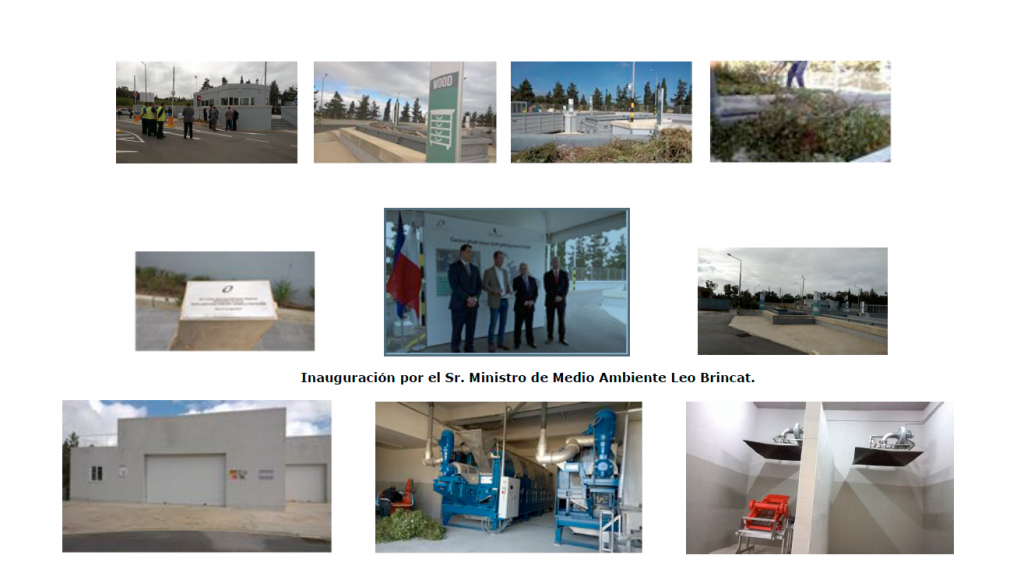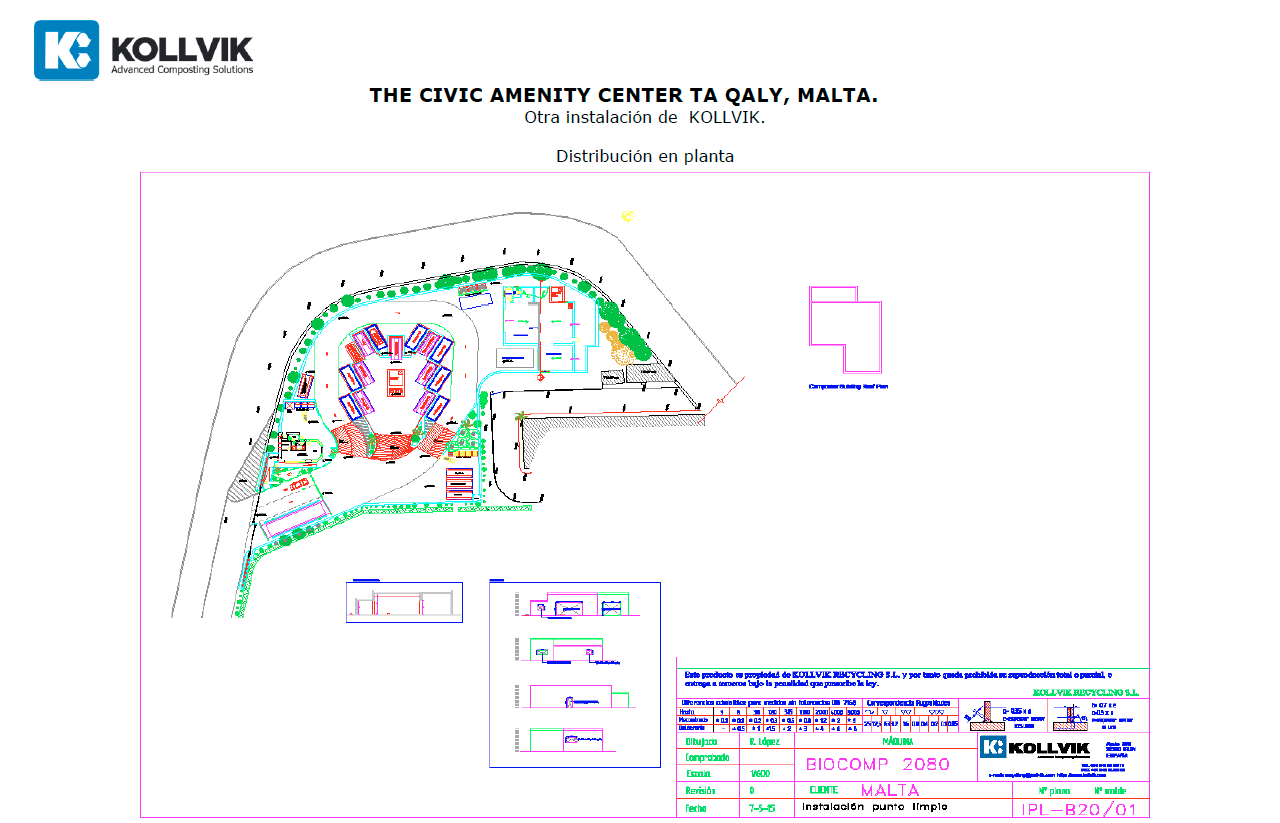· It includes the composting plant supplied by Kollvik Recycling SL to treat waste and generate compost.
· The event took place on the last 27th April, with the presence of the Minister for Environment of Malta, Mr. Leo Brincat.
The plant has an estimated capacity of 2 tons per day and includes the last technical advances introduced on the Biocomp rotational composters.
Composters will treat fruit and vegetables scraps from the central market located nearby and from the organic fraction of nearby inhabitants.
Kollvik has also provided prune shredding equipment and water vapour emissions and odour control treatment systems.
EQUIPMENT
- Reception building
- Hazardous materials area: pit for oils
- Woods
- Metals
- Tyres
- Plastics
- Underhand deposits
- Construction waste
- Landfill wastes- used oil tanks
- Landfill wastes- pesticides and glass
- Composting plant
- Palletized WEE Waste- Security in-vessel container for hazardous materials
- Paper
- Cardboard compactor
- Mattresses
COMPOSTING PLANT IS THE REAL INNOVATION
- Opened on 27th April 2015
- Capacity: 2 tons per day
- Waste treated: all kind of organic waste, but specially fruit and vegetables from the central market and prunes waste
- Equipment: 2x BIOCOMPTM 20/80 KOLLVIK plus auxiliary equipment
- Constructed area: approx. 300sqm
EU Funding
This project funded by the EU was awarded to Kollvik Recycling SL in a public contest and involves a substantial improvement for these types of recycling centres (Clean Points) as well as a great saving for the waste management company of the country.
We estimate that just this installation will avoid the emission of greenhouse gases to the atmosphere of almost 3.000 tCO2e every year.
Should we extrapolate this initiative all the recycling centres existing in our country, giving service to almost 500,000 people, this Mediterranean archipelago would stop emitting more than 50,000 tCO2e per year.


